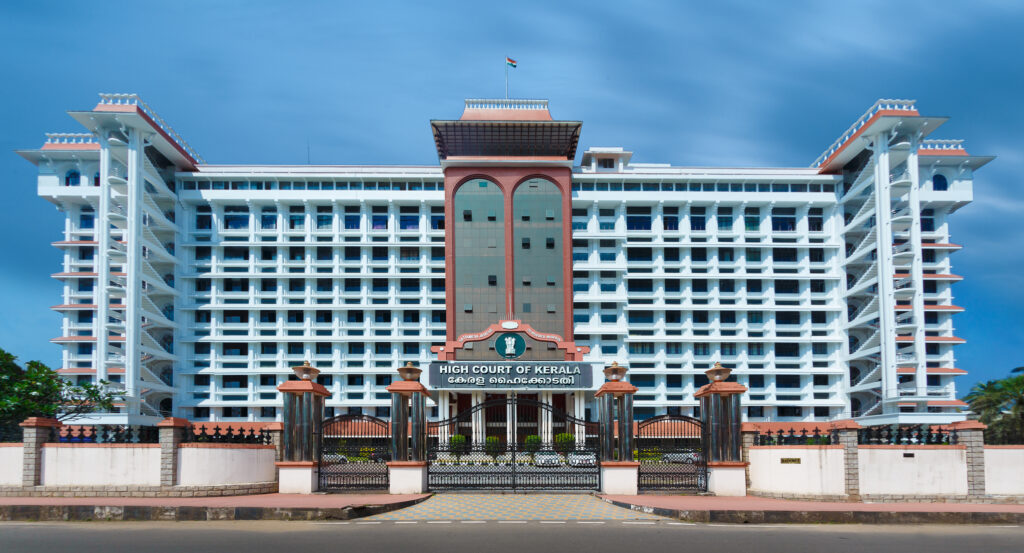The Kerala High Court has decided not to remove comments made by a Special Judge, stating that it was neither required nor possible to listen to the delinquent police officer.

The Kerala High Court decided not to remove comments made about a Police Officer, stating it was not necessary or feasible to hear him since the case was based on evidence. The Court was reviewing a Criminal Miscellaneous Case filed under Section 482 of the Code of Criminal Procedure, which sought to remove negative remarks made by the Fast Track Special Judge. Justice A. Badharudeen noted that there was no evidence to show that the accused was released or that the mobile phone with important evidence was returned to the petitioner, as stated by the Special Judge. Therefore, the Special Judge’s findings about the petitioner’s negligence were not deemed illegal or unreasonable, making it unnecessary to reconsider them. Thus, in such situations, it is neither required nor possible to hear the officer involved.
The Petitioner was represented by Advocate T.R. Rajesh, while Senior Public Prosecutor Renjit George represented the Respondent. The accused faced charges under Sections 447, 354-C, and 324 of the Indian Penal Code, as well as Section 15 of the Protection of Children from Sexual Offences Act, 2012. The accused later filed a request under Section 227 of Cr.P.C. for discharge, arguing that the charges did not apply to him. The Special Judge addressed this argument and discharged the accused from the charges under Sections 201 and 354 of IPC and Section 15 of the POCSO Act, but allowed the prosecution to continue for the charges under Sections 447 and 324 of IPC. Consequently, the Government also began disciplinary action against the petitioner.
Counsel for the Petitioner argued that the petitioner only had supervisory authority in the investigation, and the Special Judge made harsh comments without allowing the petitioner to present his side. He also claimed that the High Court has the power to remove comments made by itself or lower courts to ensure justice and uphold dignity, as well as to prevent misuse of the court process. He referenced Supreme Court cases including State of U.P v. Mohammad Naim, Niranjan Patnaik v. Sashibhusan Kar and another, and A.M.Mathur v. Pramod Kumar Gupta and others. In contrast, the Public Prosecutor stated that even though the petitioner was not notified, the Special Judge found that the accused and the mobile phone with evidence were given to the Inspector of Police. However, the accused was released, and the phone was returned without filing an FIR or conducting an investigation. The FIR was later filed, but the court noted that if the mobile phone had been examined right after it was seized, it would have provided strong evidence for the charge under Section 354(C) of IPC.
The Circle Inspector of Police’s decision to release the accused and return the mobile phone without filing a crime allowed the accused to destroy important evidence. By the time the FIR was filed 15 days later, crucial evidence was already lost. At this point, the Special Judge suggested disciplinary action, and according to the Public Prosecutor, there was no need to give the officer a chance to be heard.
The Public Prosecutor highlighted that when the court makes decisions based on available evidence, issuing a notice to someone based on potentially negative circumstances could delay the delivery of judgments. Therefore, the argument made by the petitioner on this matter would not be successful.
The Court confirmed that the High Court has the special power to remove comments made by itself or a lower court to ensure justice is served. However, this power is only used in rare situations. The court stated that negative comments should not be directed at individuals or authorities involved in cases unless absolutely necessary for the case’s decision. The Court also pointed out that while examining the alleged crimes under Section 354C of IPC and Section 15 of the POCSO Act, the Special Court had to determine if the basic elements of these crimes were present and also considered the surrounding circumstances, which could have provided evidence for these offenses.
The petitioner’s failure to act properly resulted in the accused being discharged from charges under Section 354C of the IPC and Section 15 of the POCSO Act by the Special Judge. The Special Judge determined that the Police Inspector intentionally helped the accused by allowing evidence to be destroyed. The Court emphasized that, based on the Supreme Court’s ruling in Niranjan Patnaik v. Sashibhusan Kar and another, this conclusion was essential for deciding on the discharge petition. The Court agreed with the Special Judge, noting that it was challenging to notify the Circle Inspector of Police before making comments in this situation.
The Court pointed out that during the hearing, when the petitioner’s lawyer was asked why the Special Judge’s finding was unjustified, the lawyer claimed the petitioner had no criminal history and no past failures in duty. However, the lawyer did not provide any arguments to show that the accused was not released or that the mobile phone with crucial evidence was not returned to the petitioner, as stated by the Special Judge. Consequently, the Petition was dismissed.
Cause Title: Shaju Jose vs. The State Of Kerala









